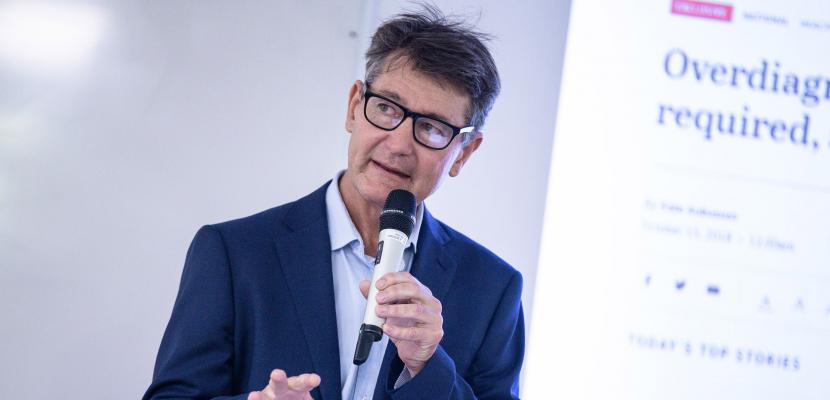
This article originally appeared on The Conversation, written by Bond University Assistant Professor Ray Moynihan.
While there’s much to celebrate in medicine, it’s now beyond doubt that we have too much of it. Too many tests, diagnoses, pills and procedures are wasting resources that could be better spent meeting genuine need.
As a recent OECD report concluded, up to one-fifth of health spending may be wasted, and many patients “unnecessarily harmed” by treatments they didn’t need.
Antidepressants, for example, can be life-savers for some people. But drug company-funded studies have overplayed their benefits and downplayed their harms, contributing to overuse and unnecessary side effects.
Widespread industry influence is jeopardising the integrity of research and medical education, and threatening the quality of patient care.
Today in The BMJ a global group of researchers, doctors, editors, regulators and advocates outline key strategies to reduce the financial entanglement with industry. The first step is ensuring the evaluation of any new tests, treatments and technologies are free from industry influence.
Distorted research, education and clinical practice
A huge proportion of medical research is currently funded by industry – in the United States almost 60%. Yet there’s a mountain of evidence that company-sponsored studies tend to overstate product benefits and playdown harms.
One example is cholesterol-lowering drugs, or statins. A review analysing almost 200 studies of statins found that company-sponsored studies were much more likely to find results favourable to the sponsors’ drug.
There’s similar distortion with devices, like pelvic mesh, used to treat pelvic organ prolapse. In this case, poor testing meant many women received the mesh without knowing the risks of horrendous harms, including severe pain, infection, and repeated surgery.
Those same companies then sponsor the “education” of your doctor, often with the evidence they’ve funded, and good food and wine.
As a study of 280,000 doctors reveals, accepting just one sponsored meal is associated with higher prescribing of the sponsor’s products: a 20% increase in statins, and a doubling of antidepressants.
Industry argues it’s information helps patients, but a systematic review found differently. Doctors who accept marketing, including sales representatives, tend to prescribe more, at higher cost, and lower quality, such as prescribing an inappropriate drug, or prescribing that is not in line with guidelines.
Just look at the opioid epidemic in the United States. One study found the amount of marketing, including payments to doctors, was associated with small but significant increases in both prescriptions and deaths from overdose.
How to end commercial influence
Evidence of the dangers of financial relationships with industry has caused many groups to seek more freedom. As we show in today’s BMJ Analysis, there are signs of change.
In Norway, industry-supported education can no longer be used formally by doctors, and the government funds independent drug information.
Some medical journals no longer accept drug company advertising. Citizen groups like the US National Women’s Health Network accept no funds from companies selling healthcare products.
The biggest challenge is working out ways to evaluate tests and treatments, free from the influence of companies developing them. But radical reform is in the wind in many places.
In Italy, the promotional budgets of drug companies are taxed to create a pool for independent research.
In Britain, Labour is proposing the government funds clinical trials and creates state-owned pharmaceutical makers.
More needs to be done
Our proposals are from a team with expertise across medicine, law, and philosophy and includes people from The BMJ and the World Organisation of Family Doctors.
We argue the pathway to independence includes three key reforms:
- government policies ensuring the evaluation of tests, treatments and technologies is free from sponsor influence
- reforms to ensure medical education is free from industry support and on-going professional accreditation can’t be gained from company-sponsored events
- new rules to end marketing interactions between industry and prescribing doctors, such as sales representatives’ visits.
In our view, tackling the current epidemic of medical excess can only work if decision-makers within health care seek much more independence from those profiting from that excess. And if you want to help develop more detailed recommendations for reform, and support the campaign launched in BMJ today, you can do so here.